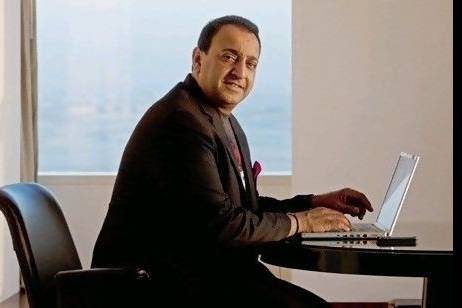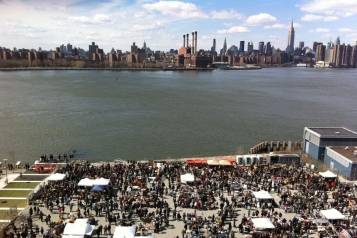
As one of the most-loved media personalities in the UAE, Rizwan Khan is also an inspirational figure who demonstrates that we can do anything we set our mind to. I’ve been fortunate to know him personally for many years, and he is just as remarkable and fabulous in real life as he is on the television set.
Born in South Yemen to a Pakistani Punjabi father and Indian Gujarati mother and then moving to London at the age of four, Khan first graced the TV screen on the BBC in the late 1980s. He was the first South Asian to appear on the BBC and one of the founders of the BBC World Service Television News program in 1991.
Just two years later, CNN recruited Khan to be a senior news anchor. He was especially known for covering the 1996 and 1999 elections in India, the 1997 election in the U.K., and offering live coverage of the Hajj Muslim pilgrimage in April 1998—something which had never been done before.

But Rizwan Khan wasn’t always focused on a career in journalism. In fact, his first love was medicine, and he initially graduated from college with a medical physiology degree but was unable to continue because he did not qualify for grants. Khan turned to journalism during his postgraduate studies with the goal of earning enough money to return to school to finish his medical studies, but that never happened—and thank goodness! The world would have missed out on a great talent if Riz had never become a journalist.
Khan has had the privilege of interviewing some big names during the course of his journalism career, including Nelson Mandela, former United Nations Secretary General Kofi Annan, the Dalai Lama and former U.S. Presidents Bill Clinton and Jimmy Carter. He also wrote a book about Prince Al-Waleed entitled Al-Waleed: Business Billionaire Prince.
When asked about his experience writing the prince’s biography, Rizwan told ArabNews.com that he first met him at a strategy forum in Dubai. “I find him remarkable and incredibly misunderstood,” he said. “There’s a lot of jealousy and negativity because of his success, but really, he’s the hardest working person I have ever come across. Perhaps the only guy who advises his advisers, the guy is a dynamo.”
In 2005 Khan went to Al-Jazeera, writing an editorial about the move that was published in The Wall Street Journal. Because he was the first South Asian to appear on the BBC, the move was controversial because the news channel is known for speaking out about the West and also governments throughout the Arab world. Khan’s move was culturally motivated as he sought to bring the West and East together.
“Al-Jazeera International is the ideal vehicle to bridge gaps between communities in the East and West,” he wrote. “I’m fully aware of the negative image of the Al Jazeera brand in the U.S., especially at the government level, but I think part of that comes from a misunderstanding of the strong cultural position the Arabic-language channel has among the average people of the Middle East.”
As a Pakistani-Indian born in Yemen, raised in the U.K., and having lived in the U.S. for some time, Khan was uniquely positioned to use his career as a platform to bring the East and West cultures together.




















